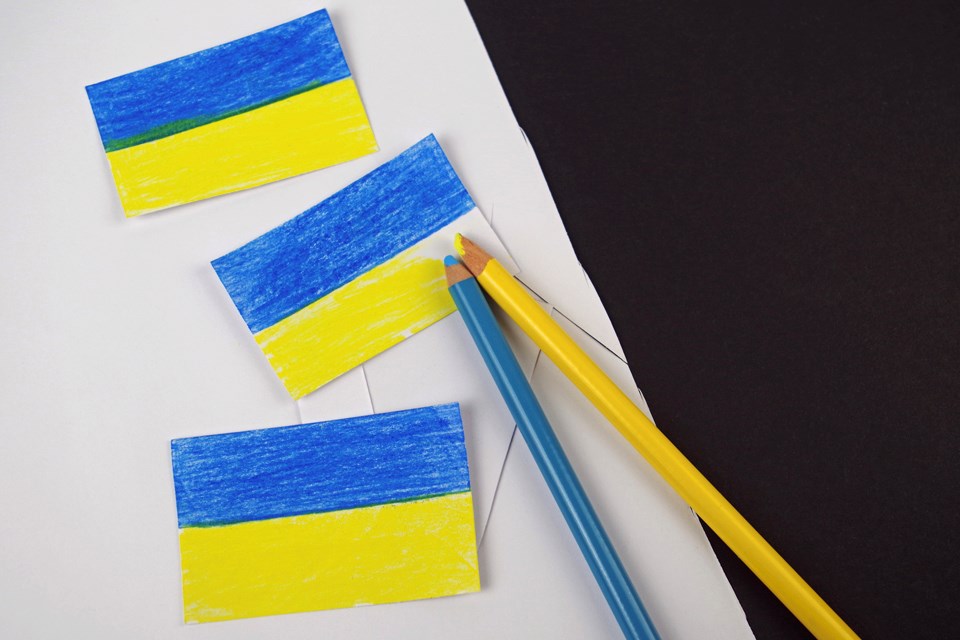The Burnaby school district’s settlement worker program is working to provide a soft landing for any Ukrainian families who might find themselves at local schools after fleeing the war in their home country.
“As it stands right now, we haven’t had big numbers of refugees coming,” said Natalya Khan, the coordinator of the district’s Settlement Workers in Schools (SWIS) program, at a public board meeting recently.
The district is currently working with just three Ukrainian refugee families, according to Khan, but the program is preparing for more, given that 4.5 million people have fled Ukraine since the Russian invasion on Feb. 24, according to the United Nations High Commission for Refugees
The district doesn’t have a Ukrainian-speaking settlement worker, but Khan said she personally has many friends in the Ukrainian community who are ready to help.
“They expressed the interest to support this program and SWIS workers if language is a barrier, and they say they will do it free of charge, just to support the people from their country,” Khan said.
As for Russian-speakers fleeing Ukraine, Khan said she could support that work herself as a native Russian speaker.
“I am available for as many families and for as long as this will be required,” she told trustees.
As of the last public school board meeting on March 29, Khan said the SWIS program was managing with the resources it had, but things could change quickly, so she is encouraged by signals from Immigration, Refugees and Citizenship Canada, which funds the program, that it would provide extra resources if needed.
“We hope that, if the Ukrainian refugees will start arriving in big numbers, we will be able to ask and receive support from the funder quickly in order to hire additional SWIS workers,” she said.
In the meantime, the SWIS program has reached out to all Ukrainian families in the district in an effort to offer support, according to Khan.
“The only thing that these families expressed were their grave concern about their relatives and families back in Ukraine, and they didn’t know what to do, how to bring them here. That was the main concern,” Khan said.
The SWIS program has responded by sharing all the information it gets about the situation in Ukraine with local families and by translating settlement-related documents into Ukrainian.
The program is also working on making a counsellor available to Ukrainian families in the district.
“SWIS workers are a very experienced team. We work together and we do have a roadmap on how to support refugee families,” Khan said.
As refugees arrive from Ukraine, however, Khan said there are questions the district will have to grapple with, including the issue of who will be eligible for federal settlement services and support – such as the SWIS program.
She noted the federal government announced on March 17 it was bringing Ukrainians in as “temporary residents” under the Canada-Ukraine authorization for emergency travel (CUAET).
“They are temporary residents. They are not eligible for settlement services and support, and they are brought in by federal government. There should be something done if they are in big numbers,” Khan said.
Follow Cornelia Naylor on Twitter @CorNaylor
Email [email protected]



